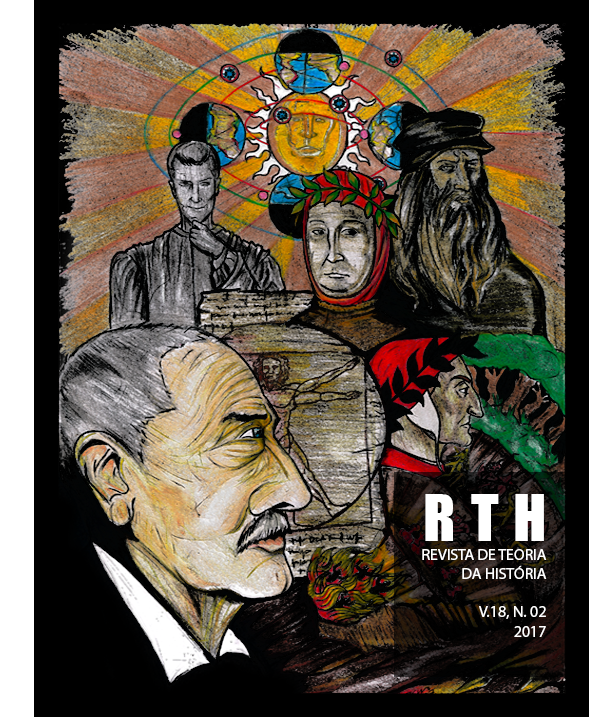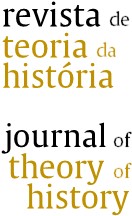O TRÁGICO E A MODERNIDADE EM SCHILLER
Schlagworte:
Trágico, Tragédia, Modernidade, friedrich Schiller, História da EstéticaAbstract
Embora intrinsecamente associado à história da tragédia, o Trágico surgiu na modernidade como um conceito autônomo e inaugurou um novo olhar acerca do homem. Se por um lado persiste a ideia do fortalecimento moral estimulado pelo sofrimento, por outro, a cisão que a tragédia pretendia apaziguar, ao menos momentaneamente, é aceita como definitiva, abrindo na cultura ocidental uma grande cicatriz. Caso não possamos afirmar o surgimento de uma filosofia do Trágico já na obra de Schiller, certamente não teríamos problemas em assegurar a tragicidade que o autor expressa em suas peças teatrais, bem como em seus escritos filosóficos. Por isso, tenho como interesse pensar como a tragicidade se expressou através de sua concepção de arte e do próprio momento histórico em que vivia como um episódio trágico. Para tal, devemos devolver o trágico ao nível mais concreto de sua realização, a ação, pois é no terreno da ação, seja nas tragédias, ou mesmo na vida, que o trágico ganha contornos, de fato, dramáticos.
Literaturhinweise
ADORNO, Theodor. Dialética Negativa. Rio de Janeiro: Jorge Zahar Ed., 2009.
ALVES JÚNIOR, Douglas Garcia. Os Destinos do Trágico: arte, vida, pensamento. Belo Horizonte: Autêntica/Fumec, 2007.
ARENDT, Hannah. Entre o passado e o futuroSão Paulo: Perspectiva, 2005.
ARISTÓTELES. Arte Poética. Rio de Janeiro: Ediouro, 1969.
BARBOSA, Ricardo. “A especificidade do estético e a razão prática em Schiller.” In: Kriterion: Revista de Filosofia. Vol.46,no.112.Belo Horizonte: Departamento do filosofia da UFMG,Dez.2005.
BARBOSA, Ricardo. Schiller e a cultura estética. Rio de janeiro: Jorge Zahar Ed., 2004.
BENJAMIN, Walter. O Conceito de Crítica de Arte no Romantismo Alemão. São Paulo: Iluminuras,1993.
BENJAMIN, Walter. Origem do drama trágico alemão. Belo Horizonte: Autêntica Editora, 2011.
BERMAN, Marshall. Tudo que é sólido desmancha no ar: a aventura da modernidade. São Paulo: Companhia das Letras, 1986.
CASSIRER, Ernst. A filosofia do Iluminismo. São Paulo: Editora da Unicamp, 1994.
CORNEILLE, Pierre. O Cid e Horácio. Rio de Janeiro: Ediouro, s/d.
COURTINE, Jean-François. A Tragédia e o Tempo da História. São Paulo: Editora 34, 2006.
EAGLETON, Terry. Doce violência: A ideia do trágico. São Paulo: Unesp, 2013.
ÉSQUILO. SÓFOCLES. EURÍPIDES. Os Persas, Electra e Hécuba. Rio de Janeiro: Jorge Zahar Ed., 2007.
EURÍPIDES. Medéia/As Bacantes. São Paulo: Abril Cultural, 1976.
KESTLER, Izabela Maria Furtado. “Friedrich Schiller e a fundação do cânone da Modernidade”. In: Forum Deutsch Revista Brasileira de Estudos Germânicos. Rio de Janeiro: Revista 10, 2006.
KOSELLECK, Reinhart. Crítica e Crise: uma contribuição à patogênese do mundo burguês. Rio de Janeiro: EDUERJ: Contraponto, 1999.
KOSELLECK, Reinhart. Futuro Passado: contribuição à semântica dos tempos históricos. Rio de Janeiro: Contraponto: Editora PUC-Rio, 2006.
MACHADO, Roberto. O nascimento do trágico. Rio de Janeiro: Jorge Zahar Ed., 2006
(CONT.)
Downloads
Veröffentlicht
Zitationsvorschlag
Ausgabe
Rubrik
Lizenz
A Revista publica única e exclusivamente artigos inéditos. São reservados à Revista todos os direitos de veiculação e publicação dos artigos presentes no periódico.
Licensed under a Creative Commons Attribution-NonCommercial-NoDerivatives 4.0 International License



